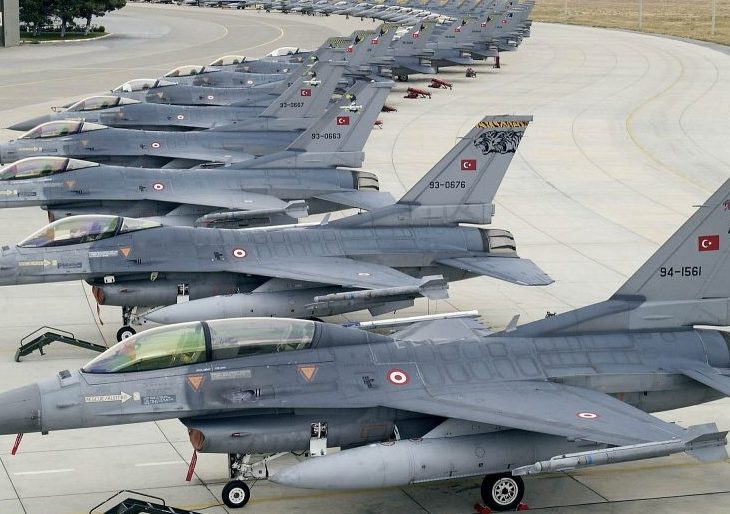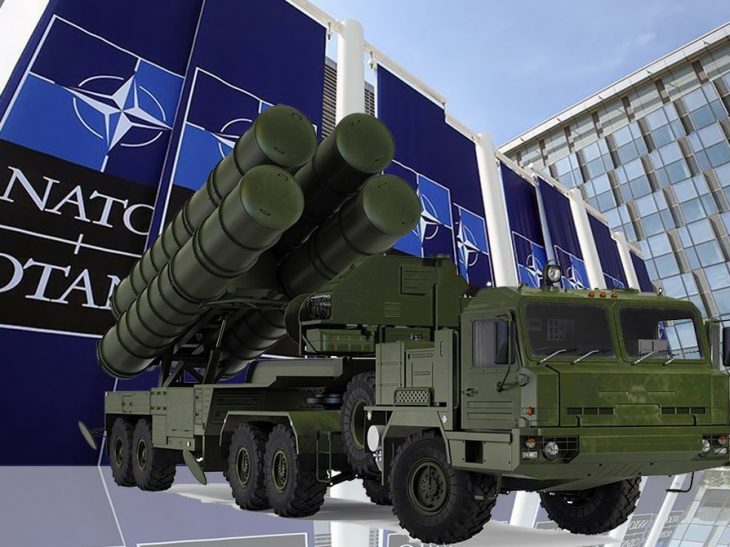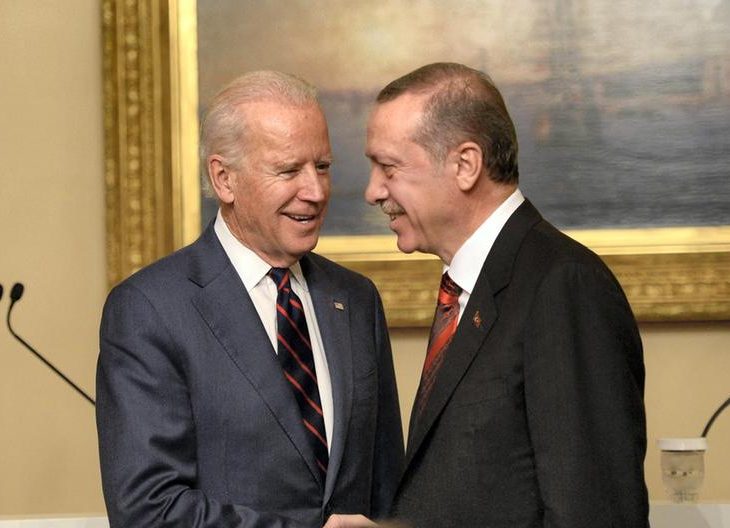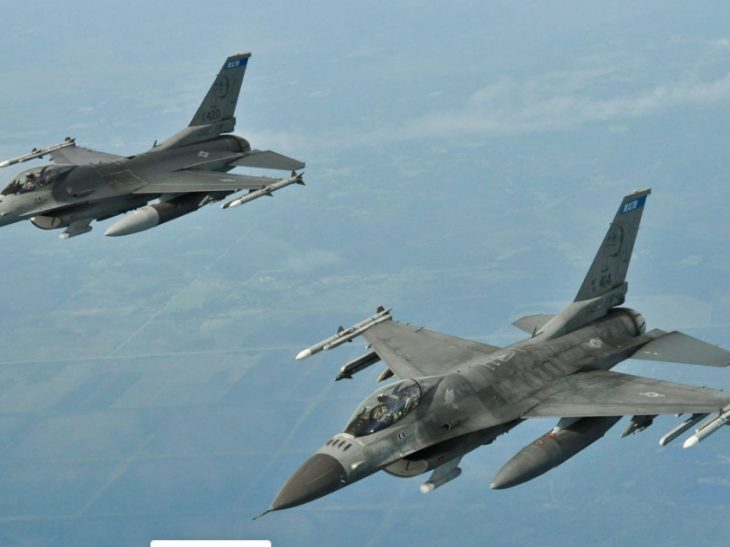Turkey, US back to S-400 quagmire after Erdoğan vows to get second batch
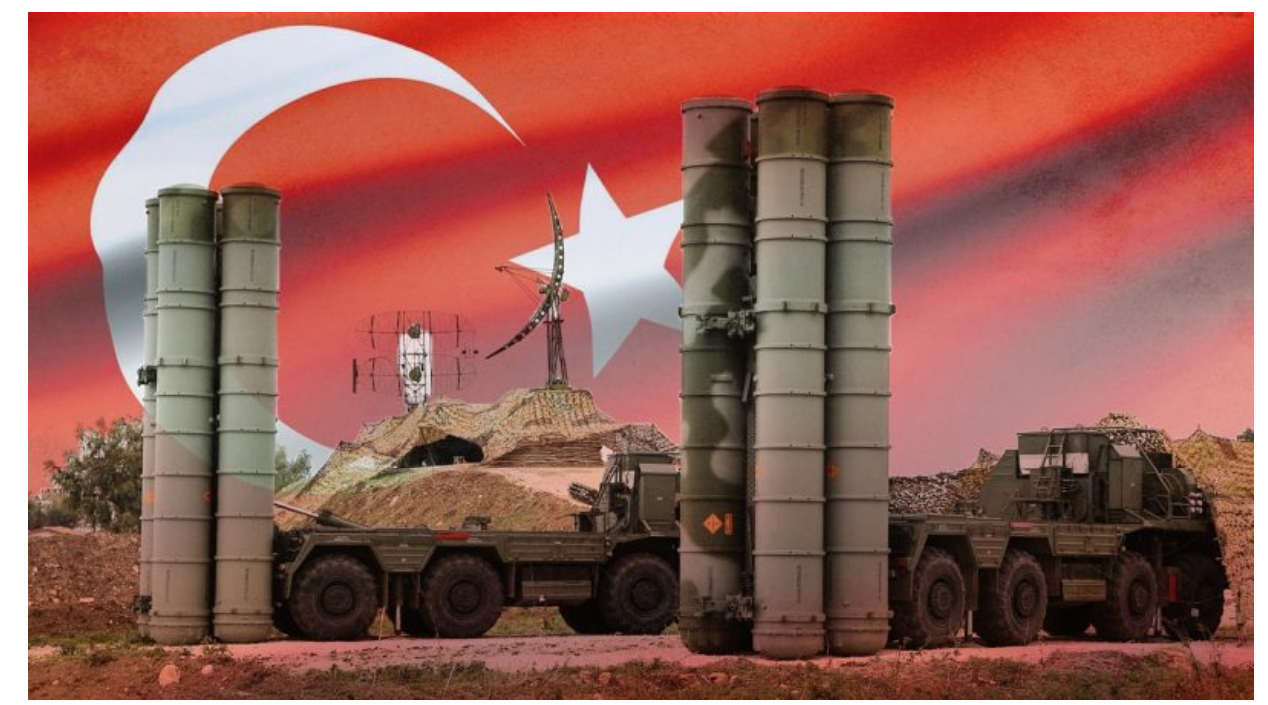 s400
s400
President Recep Tayyip Erdoğan said Turkey still intended to buy a second batch of S-400 missile defense systems from Russia, a move that could deepen a rift with NATO ally Washington and trigger new U.S. sanctions.
Washington says the S-400s pose a threat to its F-35 fighter jets and to NATO’s broader defense systems. Turkey says it was unable to procure air defense systems from any NATO ally on satisfactory terms.
“In the future, nobody will be able to interfere in terms of what kind of defense systems we acquire, from which country at what level,” Erdoğan said in an interview that aired on CBS News’ “Face the Nation” on Sept. 26.
“Nobody can interfere with that. We are the only ones to make such decisions.”
The United States imposed sanctions on Turkey’s Defense Industry Directorate, its chief, İsmail Demir, and three other employees in December following the country’s acquisition of the first batch of S-400s.
Talks continued between Russia and Turkey about the delivery of a second batch, which Washington has repeatedly said would almost certainly trigger new sanctions.
“We urge Turkey at every level and opportunity not to retain the S-400 system and to refrain from purchasing any additional Russian military equipment,” said a State Department spokesperson when asked about Erdoğan’s comments.
“We continue to make clear to Turkey that any significant new Russian arms purchases would risk triggering CAATSA 231 sanctions separate from and in addition to those imposed in December 2020,” the spokesperson added, referring to the 2017 Countering America’s Adversaries Through Sanctions Act. The spokesperson also said the United States regards Turkey as an ally and friend and seeks ways to strengthen their partnership “even when we disagree.”
Erdoğan will meet with Russian President Vladimir Putin in Sochi on Sept. 29 to discuss issues including the violence in northwestern Syria.
‘Biden didn’t raise the issue of human rights’
Erdoğan also said that U.S. President Joe Biden never raised the issue of Turkey’s human rights track record, seen as extremely troublesome by international rights advocacy groups, confirming Reuters reporting from earlier in September.
Asked whether Biden brought up the issue during their June meeting on the sidelines of a NATO summit in Brussels, Erdoğan said: “No he didn’t. And because we don’t have any problems of that nature in terms of freedoms, Turkey is incomparably free.”
Turkey is among the top jailers of journalists, according to figures from the Committee to Protect Journalists (CPJ), while Human Rights Watch says Erdoğan’s authoritarian rule has been consolidated by the passage of legislation that contravenes international human rights obligations.
I don’t know what Biden meant by calling me an autocrat: Erdoğan
President Recep Tayyip Erdoğan has commented on U.S. President Joe Biden’s description of him as an “autocrat,” saying that he doesn’t know what he meant by the definition.
“Well, as of now, Mr. President’s definition of an autocrat remains unknown to me, I don’t know what he meant,” Erdoğan said in an interview that aired on CBS News’ “Face the Nation” on Sept. 26 when asked how he would describe his relationship with Biden.
“My past is of a political past, and in my political past, which dates back to four decades, I’ve always internalized democracy and I have dedicated these four decades to servicing my people. That’s the kind of a leader I am and this is how I came to be what I am today,” he also said.
Noting that he won in every election he competed in in the past 20 years, Erdoğan said that this was made possible because “my people never complained of me.”
“I became the president, and I still am the president of my country servicing my people. This is the process, and I really don’t know what Mr. President meant by saying autocrat,” the Turkish President said.
Since taking office, Biden has made a deliberate show of keeping Erdoğan at arm’s length. Although Turkey is a NATO ally, Biden called Erdoğan for the first time on April 23 to give him advance warning that he would be using the term “genocide” in the White House’s annual message to mark the April 24 anniversary of the mass slaughter of the Armenians in 1915.
The pair did eventually meet on the sidelines of the NATO summit in Brussels in June, and the Biden administration has toned down its earlier critiques of Erdoğan.



